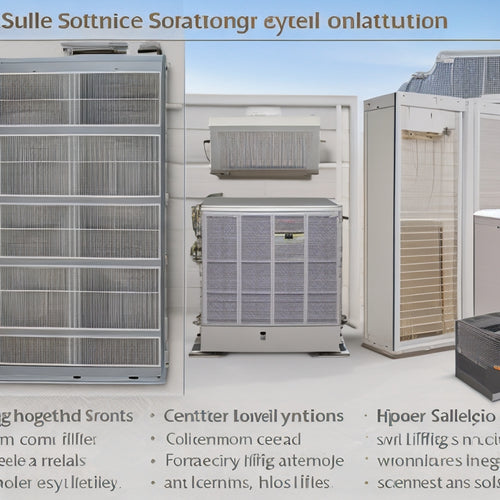
What Soaps Work Best in Greywater Systems?
Share
When choosing soaps for your greywater system, you'll need to prioritize eco-friendly options that won't harm the environment or clog your system. Opt for soaps with biodegradable ingredients, free from harsh chemicals, dyes, and fragrances. Look for certifications like EcoLogo or Safer Choice to guarantee environmental compliance. Natural hand soaps, eco-friendly laundry detergents, and biodegradable dish soap alternatives are all good choices. You'll also want to select greywater-friendly shower gels with natural ingredients and transparent labeling. By making informed choices, you can maintain a safe and effective greywater system - and there's more to investigate on this topic.
Key Takeaways
- Choose soaps with biodegradable ingredients and natural fragrances to prevent groundwater contamination and ecosystem disruption.
- Opt for soaps with certifications like EcoLogo or Safer Choice to ensure environmental compliance and safety.
- Avoid soaps with high pH levels, harsh chemicals, and artificial dyes that can harm greywater systems and aquatic life.
- Select soaps with transparent labeling and manufacturer claims for greywater compatibility to ensure safe use.
- Prioritize soaps with sustainable and non-toxic ingredients that break down easily within greywater systems to maintain ecosystem balance.
Safe Soap Options for Greywater
You need to choose soaps that are compatible with your greywater system to guarantee it functions properly and doesn't harm the environment.
Greywater regulations vary, but generally, soaps with harsh chemicals, dyes, or fragrances are prohibited. Opt for soaps with natural, biodegradable ingredients that won't contaminate groundwater or harm aquatic life.
Look for certifications like EcoLogo or Safer Choice, which confirm the soap meets environmental standards. When maintaining a healthy EV battery, it's crucial to monitor grid demands and understand energy provider rate structures to adjust charging times and reduce congestion.
Avoid soaps with high pH levels, as they can disrupt the ecosystem. Always check the soap's ingredients and manufacturer's claims to verify they align with your greywater system's requirements.
Eco-Friendly Laundry Detergents
Eco-friendly laundry detergents are an essential component of a greywater system, as they directly impact the quality of wastewater. You'll want to choose detergents with sustainable ingredients that minimize harm to the environment.
Look for eco certifications like EPA Safer Choice or Leaping Bunny, which guarantee the products meet rigorous standards for environmental sustainability and human safety. Opt for detergents that are biodegradable, non-toxic, and free of phosphates, chlorine, and other harsh chemicals.
By adopting sustainable practices, such as switching to renewable energy, we can reduce our reliance on fossil fuels and improve environmental stewardship. Furthermore, utilizing solar energy can lower energy bills through free solar energy generation, which is an added benefit for greywater systems.
These eco-friendly detergents will help maintain a healthy greywater system, allowing you to reuse wastewater for irrigation and other non-potable purposes. By making this conscious choice, you're taking a significant step towards reducing your environmental footprint and promoting a more sustainable lifestyle.
Natural Hand Soaps for Reuse
When it comes to greywater systems, laundry detergents aren't the only products that require careful consideration.
You'll also want to choose natural hand soaps that are gentle on your skin and the environment. Look for hand soaps that are free of harsh chemicals and artificial fragrances, and instead opt for those with herbal ingredients that provide moisturizing properties.
To guarantee peak energy production, it's crucial to optimize your solar panel array design and select energy-efficient equipment to minimize losses.
These soaps won't only keep your skin healthy and hydrated, but they'll also break down easily in your greywater system, reducing the risk of clogs and contamination.
Biodegradable Dish Soap Alternatives
Most greywater systems require a significant overhaul of household cleaning products, and dish soap is no exception.
You'll need to switch to biodegradable dish soap alternatives that won't harm your system or the environment. Look for products with biodegradable ingredients that break down quickly and easily.
Many eco-friendly charging stations also incorporate sustainable practices, such as renewable energy sources, to reduce their carbon footprint.
Avoid soaps with phosphates, chlorine, or other harsh chemicals that can contaminate your greywater. Opt for soaps with sustainable packaging, such as refillable containers or biodegradable packaging materials.
Some popular biodegradable dish soap alternatives include Ecover, Seventh Generation, and Dr. Bronner's.
When shopping, read labels carefully to verify the product meets your greywater system's requirements.
Greywater-Friendly Shower Gels
Your greywater system's integrity depends on the shower gel you use, as harsh chemicals can contaminate the water and harm the system. When choosing a greywater-friendly shower gel, look for ones with natural ingredients and transparent labeling. Scent considerations are also important, as some fragrances can be toxic to aquatic life.
| Brand | Key Features |
|---|---|
| Dr. Bronner's | Natural, biodegradable, and free of synthetic fragrances |
| Burt's Bees | Plant-based ingredients, gentle on skin and the environment |
| Seventh Generation | Transparent ingredient labeling, EPA Safer Choice certified |
| Nature's Gate | Natural essential oils, free of phthalates and parabens |
Frequently Asked Questions
Can I Use Soap Nuts or Washing Soda in My Greywater System?
You can use soap nuts, which offer gentle, eco-friendly soap nut benefits, or washing soda, known for its washing soda effectiveness, in your greywater system, but be aware that soap nuts may clog filters, while washing soda can raise pH levels.
Are Soap Residues in Greywater Harmful to Plants and Soil?
You're right to wonder if soap residues in greywater harm plants and soil; soap toxicity can contaminate soil and groundwater, amplifying environmental impact, but choosing the right soaps can mitigate this risk, ensuring a healthier ecosystem.
Do I Need to Pre-Treat Soap Wastewater Before Reuse?
You'll likely need to pre-treat soap wastewater before reusing it, as greywater regulations vary, and soap composition affects water quality; understanding local regulations and soap properties will help you design an effective pre-treatment strategy for responsible reuse.
Can I Use Homemade Soap Recipes in My Greywater System?
You crave freedom from commercial soap constraints, but beware: homemade soap recipes can be a greywater system's worst nightmare if they contain oils that clog pipes or harm microorganisms; carefully choose ingredients ensuring greywater compatibility to avoid system sabotage.
Are All Castile Soaps Suitable for Greywater Systems?
You'll find that not all castile soap varieties are suitable for greywater systems, as some can harm aquatic life; look for eco-certified options with low environmental impact, and always check the ingredients and pH levels to verify a safe choice.
Related Posts
-

Why Solar HVAC Filters Revolutionize Home Energy Efficiency
By adopting solar HVAC filters, you're shifting your home's energy reliance from fossil fuels to clean, renewable sou...
-

Why Transform Human Waste Into Garden Gold?
By changing human waste into garden gold, you'll reduce waste management costs, support sustainable agriculture, and ...
-

Green Deck Options: Earth-Conscious Choices for Your Home
You're looking for a deck that not only enhances your home's exterior but also aligns with your eco-friendly values. ...


